#xiah junsu icons
Explore tagged Tumblr posts
Text






💌 kim junsu icons (xiah)
💫 like or reblog if u use or save.
#old icons#old kpop#old kpop icons#old packs#tvxq icons#jyj icons#jyj#tvxq#messy icons#junsu packs#kim junsu packs#xiah junsu packs#junsu icons#kim junsu icons#xiah junsu icons#junsu headers#jyj headers#tvxq headers#xiah junsu headers#kim junsu headers
15 notes
·
View notes
Text
The person who said that Xia’s Tarantallegra (and other songs) paved the way for comebacks like Taemin’s to thrive is a true philosopher of the modern age.
#like that person said when Xiah did it it was very bold and it was misunderstood but he still kept pushing the boundaries#and it is still one of the most iconic things ever#reading that made my day brillian take#you know let's never forget who came before#special shoutout to Shinhwa's This Love too#unparalleled#xiah#tarantalllegra#shinhwa#this love#taemin#idea#my queen#fucktiddyboy#thémine#cultaeleader#tiermin#xia junsu
59 notes
·
View notes
Text





» TVXQ (DBSK) Ot5 Live Icons
»like/reblog if you use or save
×Dont repost without credits×
#Kpop#kpop icons#old kpop#tvxq#tvxq icons#dbsk#dbsk icons#kim jaejoong#jaejoong#jyj#jyj jaejoong#jyj icons#uknow yunho#yunho icons#xiah junsu#xia junsu#jyj junsu#kim junsu#yoochun#Yoochun jyj#max changmin#changmin#max icons#Hero tvxq#Uknow#Xiah#Micky#Max
66 notes
·
View notes
Text
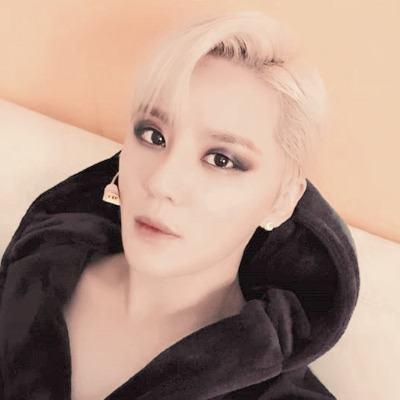

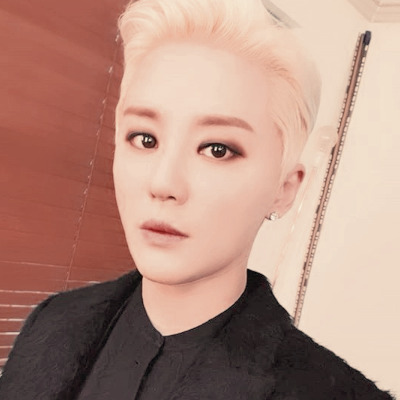

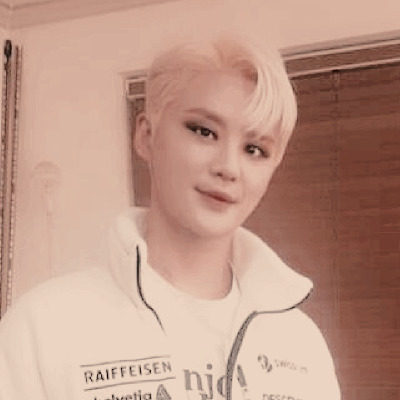

Like or reblog if you save/use ♡
#jyj#jyj icons#jyj junsu#junsu#junsu icons#xia junsu#xiah junsu#kpop icons#soft icons#tvxq#dbsk#tohoshinki
36 notes
·
View notes
Photo





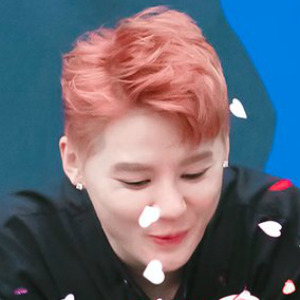
♡ 𝒋𝒖𝒏𝒔𝒖 𝒊𝒄𝒐𝒏𝒔 ♡ 𝒅𝒐𝒏'𝒕 𝒓𝒆𝒑𝒐𝒔𝒕
#junsu icons#kim junsu#xiah junsu#xia#jyj icons#kpop icons#tvxq icons#dbsk icons#way back xia#kpop christmas icons#christmas icons
47 notes
·
View notes
Photo






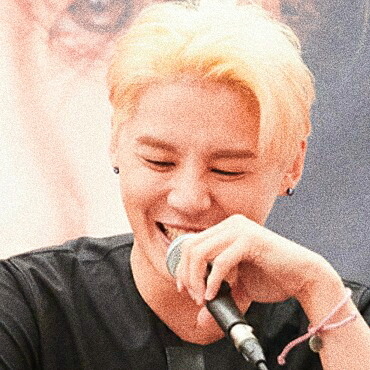

Reblog/Like if u use/save pls ~ ♡
12 notes
·
View notes
Photo










N + JUNSU
Icons © iconskpops vixxnopsd (fiz alterações no 2º, no 4º e no 5º)
Headers are ours
Like if you save
∗* jisoobutterfly ,,.!¡*
#cha hakyeon#xiah junsu#tvxq#jyj#kim junsu#junso#xia junso#xiah junso#headers xiah#xiah headers#xia junso headers#headers xia junso#xiah junso headers#headers xiah junso#junso headers#headers junso#jyj headers#headers jyj#tvxq headers#hakyeon icons#icons hakyeon#n#vixx#icons vixx#vixx icons#aghata
10 notes
·
View notes
Text
“What do you think your kpop biases say about you?”
@d-nghy-ck Hope you don’t mind me thinking about and responding to this more in a post! I love this question. “What do you think your kpop biases say about you?”
I’ve considered this question before, but never put my thoughts down. So… here goes!
For the amount of time I’ve listened to Korean music, I think I have a surprisingly small number of biases. There are many artists that I love, but ones that I’d truly name as my biases over the years are:
DBSK Xiah Junsu
SHINee Onew
B1A4 Sandeul
NCT Mark
NCT Haechan (I have to stop denying it haha. A bias wrecker is a bias too after all.)
*Insert the meme of doing complex math calculations* So what are the patterns...
Overall, I am drawn towards the vocalists in the groups.
Junsu, when I first started listening to kpop in the early 2000s and his incredible emotive singing (cue ost’s and musicals with heavy vibrato, haha). Onew, for his calm, clear, strong tone (perfect for ballads and lullabies). Sandeul for his range, control, and bright vocals. Haechan for his unique timbre. Mark seems an exception as he is mostly featured rapping, but honestly I’m weak in the knees whenever he sings, i.e., the line “나의 꿈은 아직 너야” in “White Night”... His voice is so soft. Please!!!
In real life, this is true too! Singing and musicality are talents that I find very attractive. I loved listening to my first love/ex-boyfriend(sigh) singing and playing guitar/piano… :’) My dream is to feel free and enjoy singing duets and creating music with my significant other one day~
I also have a thing for group leaders, leaders with more of a quiet charisma, a la Onew with SHINee and Mark with Dream.
I find the duality of their introversion/shyness/being “4D”/laidback personality and then being so confident and diligent when working and performing to be extremely charming. They seem like leaders and really, just people, whom others can go to when they just need someone to listen, and they’d help you get out of your head. I am genuinely touched by stories of others going to Onew when they have life troubles. Maybe as a counselor, I look up to and aspire to be like that—understanding, wise, patient, strong. “Like an ocean.” When others share their secrets or shout their pains into the waters, being like an ocean that can absorb their worries and hold them.
Ok and on the shallow end of things, these two have slim figures with really nice toned tummies and they both refuse to show it >_<! Why is that a pattern in my taste? Lol. They also have the cutest nose scrunch??
As a fan, I’ve found that I am very devoted to one group/person at a time. It’s never to the point of being a solo fan/akgae, but I find it difficult to be as multi-fandom as other friends or people seem to be! I wonder if perhaps my conservative, religious upbringing beat into me the importance of monogamy sooo hard that I couldn’t even like multiple people or groups at the same time, how sad! Lol. Good thing NCT has 21 members. It’s a great opportunity for me to learn how to appreciate many boys at once :P
Lately I’ve been wondering about NCT and compatibility/ideal types.
Despite knowing that the MBTI has poor validity and reliability as a personality test… it’s just so much fun! Personally, as an ENFP/ENFJ, I really love all of the Diplomat “NF” types—so Haechan (ENFP) and Mark (INFJ) make absolute sense as my biases!! By that logic, Jisung would be an ideal match with me too, since he’s INFP/INFJ. Boy, if you were born one decade earlier!! My other MBTI match is ISFP (that’s Onew! and Jeno!). P.S. On this topic, I love that Haechan and Mark are ideal types for each other LOL.
Honorable mention: IU!! IU is my girl crush, my style icon, my almost same-aged friend, but… I joke that she is my daughter! If I had a daughter, I would her to be like IU, haha.
Okeyyyy, I rambled a lot. I don’t know if any of this was remotely interesting. It was mostly random fun self-reflection for me!
2 notes
·
View notes
Photo

191024 - Old TVXQ Performance Hailed as the Best Live Performance in K-Pop History SM Entertainment‘s OG boy group TVXQ is known to be legends in the K-Pop scene, & for good reason. Originally consisting of members Jaejoong, Park Yoochun, Xiah Junsu, Yunho, & Changmin, they were (and still are) the complete package. They never lacked in vocals, rapping, dancing, & charisma. In fact, one performance of theirs is being hailed as the best in K-Pop history by a number of Koreans. It is their iconic 2008 performance of their song “Mirotic” in SBS’s Inkigayo. It has been over 11 years since they performed it. Fans are still in awe over how their voices did not shake at all even while dancing, proving that their singing & dancing abilities were top notch. Many netizens expressed their agreement, while others felt nostalgic remembering the old TVXQ. "Let’s just acknowledge this is true. They did f*cking well. I clicked on this article knowing it would be OT5 TVXQ…They were my biggest prideㅠㅠㅠ"– Korean Netizens Sources: theqoo + HDfullKpop theqoo.net/index.php?mid=hot&filter_mode=normal&page=3&document_srl=1235983692 youtu.be/8qYmlkudmJk Translation: Koreaboo koreaboo.com/stories/old-tvxq-performance-hailed-best-live-performance-in-kpop-history/ posted on Instagram - https://ift.tt/2JiLjFD
10 notes
·
View notes
Photo




Junsu icons/ Yoosu headers
✧・゚like/reblog ・゚✧
#TVXQ#JYJ#junsu#xiah junsu#junsu icons#yoochun#yoochun headers#yoosu#yoosu headers#yoosu packs#jyj packs#tvxq packs#kpop#kpop packs#dictionary#dictionary headers
19 notes
·
View notes
Photo









Like or reblog if you save/use
#jyj#bgroup icons#icons#kpop icons#kpop#jyj icons#tumblr icons#twitter icons#jaejoong icons#xiah icons#xia icons#junsu icons#yoochun icons#no psd icons#no psd#icons sem psd#bgroups
19 notes
·
View notes
Photo

Kim Junsu
Gender: Male
DOB: 15 December 1986
Nationality: South Korean
Ethnicity: Korean
Gif Hunt tag RP Icons tag
Kim Jun-su (Hangul: 김준수; Hanja: 金俊秀) or simply Junsu, also known by the stage name Xia (stylized as XIA; Korean: 시아) is a South Korean singer-songwriter, dancer, and stage actor. He is a member of the Korean pop group JYJ, and was one of the original members of boy band TVXQ.
Kim made his debut in 2003 as a member of TVXQ, a boy band produced and formed by South Korean record label and talent agency S.M. Entertainment, having previously been a trainee for six years. He had released four Korean albums, four Japanese albums, thirty Japanese singles and several Korean singles during his first six years in the music industry as TVXQ. In 2009, Kim and fellow TVXQ members Kim Jaejoong and Park Yoochun filed a lawsuit against SM Entertainment, arguing that their exclusive contracts were unilaterally disadvantageous towards the artists and should be invalidated. The Seoul Central District Court ruled in favor of the three and granted an injunction suspending their contracts. The trio reunited and subsequently formed JYJ (formerly known as JUNSU/JAEJOONG/YOOCHUN in Japan). As JYJ, Kim has released one English album, two Korean albums, one Japanese EP, and one Korean EP.
Kim began his solo career in 2010 with the release of Japanese EP Xiah, which peaked at number-two on Japan's Oricon singles chart. The same year, he took the role of Wolfgang in his debut musical Mozart!, receiving critical acclaim and commercial success. After the release of Xiah, Kim's solo music career was sent into hiatus because of a discord between him and his Japanese label Avex Trax that led to the sudden suspension of all his activities in Japan. In May 2012, he released his first full-length Korean solo studio album Tarantallegra, while being represented by new management agency C-JeS Entertainment. Following the release, he embarked on his first headlining world tour. He returned with his second Korean solo studio album, Incredible, in July 2013.
Despite limitations in media coverage and promotional activities caused by a ban in the Entertainment Departments of South Korea's three main terrestrial broadcasters resulting from SM Entertainment's interference, Kim's first and second studio album reached top two on the Gaon albums chart in South Korea, as well as reaching number-ten and number-five on the Billboard World Albums chart for Tarantallegra and Incredible, respectively. He is also known for being able to sell out tickets for his concerts and musicals within minutes, dubbed "the ticket power" by South Korean media.
4 notes
·
View notes
Video
youtube
Back in December 9, 2009 in my pre-tumblr days (livejournal ya’ll), I was taking Media Theory and Criticism in university and for my final, wrote the following about the above. It’s 3,400 words long including endnotes and just manages to tentatively tickle away at postmodernist theory before descending into I-think-I-know-what-I’m-talking-about-collegiate-word-vomit. Also, why there are I’s and we’s dropped in at the end beats me (so nonacademic who let me get away with that?!). I remember I got away with an A on this but...could be written 10 million times better by somebody else frankly (see horribly cheesy, over the top dramatic conclusion).
Anywhere You Go Samsung Will Be There: Aesthetics of the Commercial Fictional Reality
From candy commercials to ones of drinks and snacks, Korea television advertisements’ are a series of visually engaging images, showcasing the hottest celebrities from the often juxtaposed film/television/music industry[i]; one shot strategically placed after another in a highly attractive and persuasive selling fashion. No other conglomerate than the Samsung Group knows how to dominate televisual marketing in this field. Within its many branches, Samsung Electronics established the Samsung Anycall mobile phone brand, a product that has been heavily advertised by celebrity spokesmen and spokeswomen. A giant number of domestic actors and actresses as well as pop group individuals have participated but one of the most famous has been mega pop icon, Lee Hyori, who signed a contract from 2005 to 2007 to produce “music video advertisements” for the Anycall phone. Such advertisements include high quality seven to nine minute music dramas, following a format of a short film plot and often including a specific track, written to promote the model of the phone. While Lee (and now world-renown pop star, Rain) have played a huge role in commercials of a massive scale of production, the one television advertisement that warrants more than a double take is Samsung Anycall’s 2007 “Anyband” campaign[ii].
Two years ago, Samsung Anycall produced a nine-minute commercial mini-movie that replicates science-fiction attributes: portraying a dystopian society in an ambiguous, probably futuristic, timeframe and place. On giant television screens throughout the city, a masked figurehead (eerily reminiscent of both V for Vendetta’s state-run British Television Network’s giant headquarters screen and 1984’s Big Brother) dictates the rules (antithesis to Anycall’s catchphrase): “No talk, no play, no love.” The government’s police and security officials monitor citizens closely as they move in singular lines. But within this oppressive society exists a secret alliance between four individuals, four artists that Samsung brought together to create a band: internationally known Korean pop singer BoA; Xiah Junsu from boyband TVXQ/DBSK; Tablo from hip-hop group Epik High[iii]; and Jin Bora, a jazz pianist. Though isolated from each other, they operate under Samsung Anycall’s motto, “Talk, Play, Love” by communicating and recording songs through their “illegal” Anycall mobile phones. Clever and quick enough to escape from the disciplinary police on numerous accounts, Anyband is able to broadcast their theme song they recorded on their phones (named “TPL”) by infiltrating the system. At the end, they perform on skyscrapers, using their phones once again to stream their music live on the massive screens in the city. The masses connect to their message, retaliate, and the commercial ends on a happy note: oppression is defeated.
During the airing of the commercial, Samsung Anycall released Anyband’s debut single on November 8, 2007. On November 27, 2007, Samsung held an Anycall Concert, in which the fictional band made their debut on stage, performing their fictional tracks live with an additional cover of German trio, Monrose’ “Scream” under the title, “Daydream.” The individual artists (BoA) as well as their respective groups (Epik High and TVXQ) also gave solo performances, creating an intriguing combination of a simulated reality (a band that manifested inside the televisual world), adjacent to actual reality (artists and bands that have flourished in Korea’s music industry).
Anyband is not the first fictional band to grace the world of televisual consumption. The Beatles-esque Monkees from American 60s television serial, The Monkees, and the cartoon creation called The Archies from The Archie Show, both have esteemed as popular contemporary groups in the States decades ago. But the startling division that stands between the likes of The Archies and The Monkees, and Anyband is the fact that the latter came into existence through a massive commercial means on the behalf of a conglomerate as huge as General Electric.
The power of the advertising entity has created an imaginative unreal, an unreal that is so fascinating that Anyband, is now conceived as the real across viewing audiences. In this case, we turn to post-modernist thought in concern of the simulation effect. Along with the interchangeability between illusory and reality, another question arises in concern of the post-modernist belief that distinctions between high and low culture have vanished. But there is also the false reality to consider. The fictional dystopian universe is not only enhanced by the appearances of popular celebrities but it also places the seller (Samsung) in a position that is more associated with rebellion against a higher, oppressive power. Thus, we will have to turn to the Frankfurt School’s cultural theorization on hegemony’s relationship to its counterpart, dissent. Through the combined efforts of specific aspects from both the Frankfurt School and post-modernist thought, analysis of Anyband, the “band” and the advertisement itself, may widen not merely the preconception of what constitutes a commercial but also of the cultural and social atmosphere of advertising in our post-millennium world.
Postmodernism cannot be grounded to a single working definition for it varies from medium to medium. But what one can do is offer a series of aligning definitions. Jim Collins, essayist of “Television and Postmodernism” suggests a compilation of meanings that provides a sort of overarching, umbrella-like insight into the term. From “a distinctive style” (i.e. artistic, musical,) to “a condition…that typifies an entire set of socioeconomic factors” to “a specific mode of philosophical inquiry”, post-modernism can be any of the mentioned but it is crucial to indicate that it is “an emergent form of cultural analysis shaped by all of the above” (Allen, 327). This emergent form begins shaping itself in reaction to modernism, moving away from the “objective”, “realist representation” and turning to a more “subjective inward consciousness” and a more abstract, fragmented emphasis on human experience and society (328). From the firm grasp on progress, post-modernism uproots that concreteness of the past, present, and future. Within the cultural industry, a certain exhaustion takes place, in which the face of originality is now replaced by either repetition and recycling of old material or a continual quoting of what has already been stated. Amidst the wide range of postmodernist concepts and theorization, there is a specific concept called the “simulacrum”, which shall be further looked at through Mark Poster’s essay, “Baudrillard and TV Ads.”
The essay particularly studies the phenomenon of the TV commercial as a specific social event within a society where mode of information has replaced the mode of production. Poster first lays out something crucial to television advertisements, which is their lack of clarity between illusion and reality. Television advertisement are “invented models of reality which themselves contest the distinction between the real and the fictional” (57). In order to create that illusion of a reality, “the ad takes a signifier, a word that has no traditional relation with the object being promoted, and attaches it to that object…constitut[ing] a new linguistic and communications reality” (58). A new system of language presents itself and redefines the meaning of not only speech but also what associates with the product being sold. In terms of Anycall’s 2007 campaign, the words, “talk,” “play,” and “love” redefine the Anycall cell phone as a celebration of happiness and independence and as a device that aids the freedom-fighters (Anyband). The commercial further redefines Anycall’s favorite three words into a system of opposition: “no talk, no play, no love”, inventing another level of imaginary: this time, oppression, isolation, and lack of connection. Herein, the relations that link back to three simple words engage in the first step of constituting a commercialized reality.
As we look at the television advertisement, functioning with redefined signifiers, what Baudrillard calls “a simulation of a communication…which is more real than reality”, is established and the idea of the simulacrum comes forth (Poster, 63). The simulated effect, which is the commercial, turns into a hyper-reality. It takes what the viewer regards as magical and desirable, and heightens its attraction so that the viewer’s perception of what is real and what is not, becomes inter-exchanged. The fictional dimension becomes a hyperrealist dimension, an additional appendage to our already existing reality. In the case of Anyband (the group), their role as mere promoters of a phone outlives itself and proceeds to cross the line separating the simulated (the commercial) from the physical (sales of single and live concert). Samsung Anycall may not be aware of the coinciding effects of the simulacrum within their marketing strategy in 2007 but the utilization of a couple of famous faces and capitalizing off their success to invent a fictional group did not fail in grabbing the attention of millions of viewers. From natives to Korean pop enthusiasts around the world, this imagined band is merely another collaboration that places different artists on the same stage and takes the music scene to another exciting level.
Another point to consider within this ideological apparatus is the postmodernist approach towards culture capital. As essayist John Beverly states in “The Ideology of Postmodernist Music and Left Politics”, post-modernists imply that through “the traditional intellectual or aesthete in the face of the processes of transformation of culture into a commodity”, also known as “mass culture”, it leads to the “consequent collapse of the distinction between high and low culture” (sec. 2). The separation defining high art as its elevated form and containing low art in a subterranean level ceases to exist in the cultural industry today, argues the post-modernists. In regards to this hierarchal distinction, then there is something to be said in terms of Anycall’s commercial drama.
Within the context of the visual culture hierarchy, the televisual commercial occupy a considerable low rank. They hold no “aesthetic effects”, “little truth value”, and above all, they “fulfill no socially redeeming value” (Poster, 47). Above the television advertisement would probably be the music video, a phenomenon that can represent low form as well as high art, then working one’s way up to the short movie, and so forth. The hierarchal archetype then allows the viewer to differentiate between a short film or a music video and their respective attributes. But conventions and classifications can be blurred, redefined, and even broken. Samsung expands the idea of the conventional commercial with the airing of advertisements of considerable length and high quality. The Anyband campaign is filmed as an uncanny imitation of a music video. The nine-minute music-video-esque advertisement, in turn, imitates a short film drama. Like a short film, the plot unfolds; the protagonists represent concrete ideals; and the antagonistic force clearly represents an opposition that needs to be defeated. Hence, the commercial music drama manifests, complete with a narration, a paradigmatic contrast between protagonists and antagonist, a soundtrack that is not just catchy but also feeds into the Korean music scene[iv], and an underlying message. Techniques used in music videos transfer over to the commercial so that its aesthetic effect resembles more of a music video than a commercial. The object being sold is subtly placed in a specific role within the diegetic frame of narration so that the simulated reality is not interrupted.
Quality-wise and substance-wise, the Anyband commercial employs a higher form of symbols, images, and one can even argue, music, to sell a mobile phone. Such an advertisement further bridges the divide but it would not be considered as exemplary proof of the collapse of cultural differentiations. Instead, it cleverly utilizes borrowed techniques, increasing the “traffic between high and low culture” as Brian McHale states in his essay on “Science Fiction and Post Modernism” (236) to strengthen the idea of the invented reality. By transcending its categorical norms, a certain niche of the audience is convinced that this commercial is perhaps “better than a movie”[v]. What needs to be taken into consideration here is not precisely the statement itself (nor its level of ridiculousness to those who see through the illusion of Samsung’s commercial) but the experience behind the statement. A certain audience will not respond in such a way if they did not recognize the details and characteristics that often describe a different media form more than an advertisement.
Concurrently, the differentiations that elevate Samsung Anycall’s commercial to the next level does not completely redefine its category; it is still a commercial nonetheless. The symbols that are present, the signifiers, the words used, all come together in a presentable package to sell a product. The product itself represents a certain ideology, perhaps an ideology that also participates in the process of selling. Therefore, we need to further explore the combined efforts of message and motive within the false reality in the televisual advertisement. In doing so, the invented narration and ideologies present must be considered in regards to the relationship between seller and consumer and the role of music.
Rewinding back to a previous critical theory movement, the Frankfurt School, if not famous for names such as Adorno, Horkheimer, and Marcuse, approaches mass culture and societal formation with a critical theory more so than the critique of Marxist predecessors. Amongst studying numerous aspects of Western capitalist societies, “the Frankfurt School produced some of the first accounts within critical social theory of the importance of mass culture and communication in social reproduction and domination” (Kellner, par.1). While observing and witnessing the rise of media industries, the thinkers of the Frankfurt School articulated the function of the cultural industry as an agent legitimizing the ideologies prescient in social life and integrating citizens into such ideologies through exposure to mass culture.
In 1947, Theodor W. Adorno and Max Horkheimer collaborated together to write Dialectic in Enlightenment in which a segment was called “The Culture Industry: Enlightenment as Mass Deception.” Adorno and Horkheimer argue, “Anyone who resists can only survive by fitting in. Once his particular brand of deviation from the norm has been noted by the industry, he belongs to it” (p.3, par.1). In other words, rebellion, dissent, even reason merely pseudo-exist, for the act of incorporation will occur and they will be consumed by the larger hegemonic body. Though largely on the pessimistic side, this critical theorization of the cultural industry is an important part to investigate, especially in terms of commercial conceptualization.
By setting up easily recognized opposing forces (freedom-fighters versus totalitarian-like regime), Samsung makes their job easier when transforming the cell phone into a symbolic icon. The four rebels cannot communicate with each other but because of the Anycall cell phone, they are able to contact each other and fulfill their roles as emancipators. The motto, “Talk, Play, Love”, constantly re-emphasizes itself through its connection to the message. Because the Anycall cell phone has the ability to connect to other mediums (airings on the giant screens), the message becomes associated with the object. As we view this advertisement, we can deduce that the concept of the commercial is a means of promoting the cell phone as a unifying object. It is an object that provides, not only the necessary connection, but also an escape to leisure and fun.
Thus, because of the system of relationships that establishes itself within the advertisement, the viewer sees the cell phone as a resistance to the repressive regime. But the dominant ideology does not stay in power for long for the rebel movement, as symbolized through the phone, overthrows the current system and “No talk, no play, no love” is replaced by “Talk, Play, Love.” What we witness is Samsung’s role as a dominant force in economic and business reality, position itself as an anti-hegemonic force against the dominant ideology. Samsung Anycall plays the good guy in the story, mobilizing the resistant force. But at the same time, Samsung Anycall, in its physical reality, is a corporate branch, a capitalist group that thrives off the success of clever marketing techniques. The clever marketing technique at play here is what the Frankfurt School has noted about revolutionary thought: the commonly perceived image of the anti-mainstream and dissent will be absorbed by the dominant force, in this case, capitalism. By selling itself as one of us, an independent and critical body of thinkers, and not one of the evil overseers, we are persuaded into a mass following of not the anti-mainstream ideology, but one that has been swallowed up by Samsung’s corporate power.
From the Frankfurt School’s critical analyses, the Samsung Anycall campaign occupies numerous levels of deceit. But I would like to also explore a different path, maybe an idealistic one but one that considers something else. Walter Benjamin, a post-Marxist, at times linked to the Frankfurt School, introduces another take on the notion of the “aura” of art in his essay, “The Work of Art in the Age of Mechanical Reproduction” in which he argues the art-aura (the “presence of the original”, “the concept of authenticity”, the artwork’s “sensitive nucleus”, its “uniqueness”) does not exactly “wither in the age of mechanical reproduction” and against the idea that “the quality of its presence is always depreciated” (3). Instead, the act of “mechanical reproduction emancipates the work of art from its parasitical dependence on ritual,” or what is known as the “location of its original use value” of merely the author (3). As a result, the art-aura moves towards the mass audience and a wider critical attitude.
If we are to perceive the Anycall cell phone, as advertised, similarly as to Benjamin’s attitude towards means of reproduction, then the mobile phone can be a means of democratization. Music is mobilized as an emancipator force through the mobile phone technology[vi]. Its purpose does not only serve art (the creation and publicizing of music) but also serves a greater purpose of enlightenment. The experience of transferring message through song, first by audio, then by visual and audio, can be argued as not a loss of art-aura, for the cell phone bridges the distance from the creators/rebels to the audience/receivers. In this case, Anycall’s commercial concept of viewing the cell phone as unification aligns with Benjamin’s approach towards mechanical reproduction and art.
By looking at this specific commercial of Samsung’s through the numerous eyeglasses of different points of theory, I hope to point out that the analyses explored are open for further speculation. Focusing on specific aspects of both post-modernist theory and the Frankfurt school testifies that no theory can be summed up, used, or to prove something else in its entirety. Within the several niches I have mentioned, we can see the different levels a single commercial can function and persist, complicating a phenomenon that is more scorned at than tolerated. I have also provided both sides to the argument of distrust and dismay towards the corporate, from a company that tricks and deceives to one that promotes an object in celebration of ideological benefit to the people.
In the end, it is difficult to call Samsung’s Anycall commercial music drama as a commercial because of its complexities. Given the growing complexities of advertisements in our world at this time, we will have to consider the fact of the matter: we as an audience are not passive consumers. To sell us a product, the company needs to consider a wide variety of marketing approaches that both complicates and hides their ulterior motive of selling a product and making profit. On the other hand, the company may not have to hide their motive for as Adorno and Horkheimer state, “The triumph of advertising in the culture industry is that consumers feel compelled to buy and use its products even though they see through them” (p.7, par.10). The Anycall campaign may not convince everyone that the cell phone will bring unity or the concepts it preaches. But the illusory reality created, imitates high quality forms of art and pop culture so well, the skeptics can be intrigued by the product and even believe that the product is of high quality as well.
Samsung outdid themselves on this certain commercial and at the same time, built a reputation of advertising that is immense. While I hold no numbers in my hand to show how profitable they were from the Anyband campaign, there is the post-result of people around the world who still demand for more material from the group, Anyband. Recently this year, Samsung Anycall has created another fictional collaborative between four girls from four different bubble-pop groups called ‘4Tomorrow’. The truth of the matter is, strategy behind fictional bands and fictional reality works. Why else would a huge conglomerate recycle and reuse the same method again? And thus, the legacy of this commercial drama, as a singular entity and as an entire phenomenon, lives on.
Endnotes
[i] It is interesting to note that pop artists that thrive within the Korean music industry are not confined to the music industry but they also blatantly cross boundaries into other fields such as acting and modeling. Their popularity and success thrives on their ability to multi-task as much as possible. Xiah Junsu’s (guitarist and vocalist in Anyband) occupations on his Wikipedia page list the following: “singer, actor, model, songwriter, dancer, composer.”
[ii] The Anyband Campaign is considered to be the fourth installment of commercial music dramas. The first three star Lee Hyori and they are called, “Anymotion”, “Anyclub”, and “Anymotion.” This is the first time Samsung switches to another famous female figure, BoA, as their main model.
[iii] Tablo from Epik High often writes songs and lyrics that are highly critical of the mass consumerist/materialist culture as well as the ideological institutions in South Korea (education, religion, government). One could say that he was the face of rebellion, lashing against the hegemonic forces of the 21st century. Interesting enough, Samsung Anycall asked him to campaign in their advertisement, which makes one wonder about his “rebellious stance” against massive conglomerates (hence the utilization of past tense: “was”).
This is a personal blog article, with a lack of factual claim and citation, but the thoughts and ideas towards Tablo, his background, and his participation in Anycall should be considered: http://www.soompi.com/content/79916.
[iv] Many viewers of the advertisement constantly comment on the songs and how they highlight the artists’ skills and talent and how much they enjoy listening to them: http://www.channel-ai.com/blog/2007/11/08/anyband/
[v] The comment, “better than a movie” can be found as a personal opinion at this blog: http://spazzes.wordpress.com/2007/11/07/download-anyband-cf-talk-play-love/.
[vi] I did not want to go into the debate of whether Anyband’s music would be considered as “quality” music, or music that transcends beyond the electronic repetition and digitized vocals that are rampant in Korean pop. Instead, I wanted to take the term, music, and consider it on a broad, overarching sense as an art form.
5 notes
·
View notes
Photo






• Like or reblog
#jyj#jyj icons#junsu icons#xiah junsu icons#kim junsu icons#xia icons#junsu#xiah junsu#kim junsu#xia#kpop icons
22 notes
·
View notes
Text
☆ xia junsu icons ☆
(c) @eunprinz if you’re using
like/reblog if you save










#dbskjyj#jyj icons#dbsk icons#xiah junsu#xiah junsu icons#junsu icons#brena#twitter icons#icons#jyj#dbsk
26 notes
·
View notes
Photo









Like or reblog if you save/use
#junsu#xiah junsu#xiah#bgroup icons#icons#kpop icons#kpop#jyj#jyj icons#junsu icons#xiah icons#xia#xia icons#tumblr icons#twitter icons#no psd#no psd icons#icons sem psd#bgroup#tvxq#tvxq icons
21 notes
·
View notes